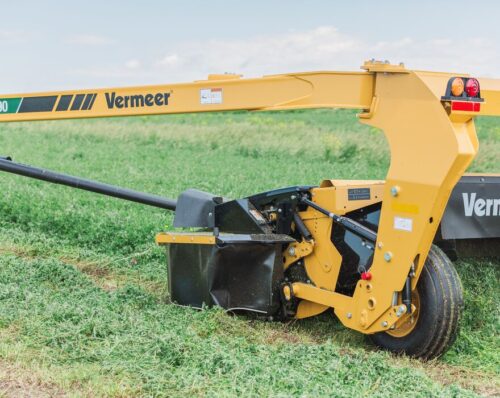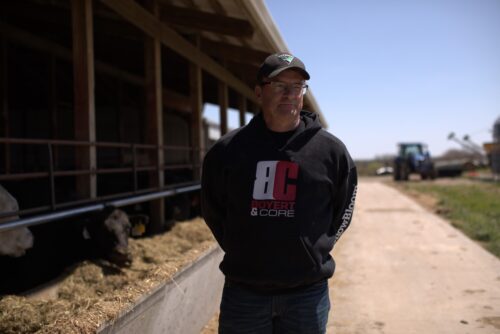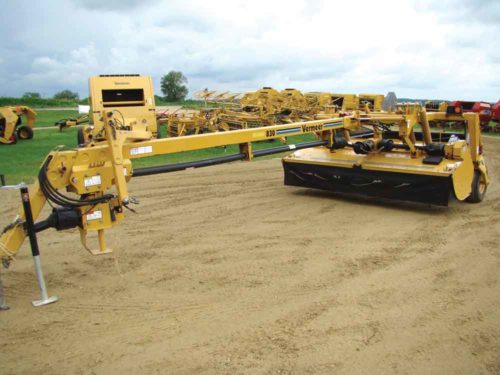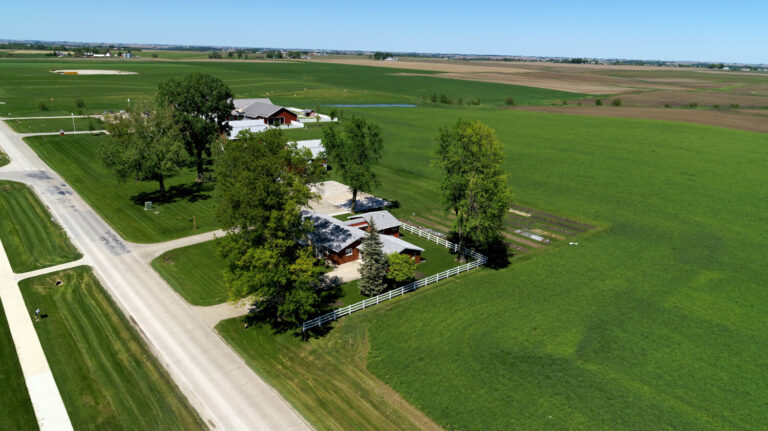
Farm Succession Planning: The Elephant in the Room
June 2023
We will cross that bridge when we get to it, is a common adage that may ring true for some happenings in agriculture. However, succession planning shouldn’t be one of them. Tragedy often spurs a rushed plan that falls flat. Putting a plan in place long before it is needed is the ticket to success.
Katie Samples Dean is an agriculture attorney who specializes in succession planning. With production agriculture in her background, she knows the value of getting a plan in place early.
“The best day to have planted a tree was 20 years ago,” she said. “The second-best day is today.” In other words, producers should start succession planning as soon as possible.
Mary Andringa, Chair Emerita of the Vermeer Board of Directors, agreed. As part of a family legacy celebrating 75 years in business, Andringa can confidently say the worst thing a family can do is nothing. Family agriculture businesses are like no other and must have a farm succession plan to remain productive.

Make farm succession planning a top priority
Samples Dean and Andringa agree: Agriculture succession planning comes with an added layer of emotion compared to other small business planning.
“There’s just a level of emotion that kind of transcends in agriculture as a whole that makes this completely different because it’s not just business planning. It is their family planning,” Samples Dean said.
“You’ve got the business of the business, and you’ve got the business of the family,” Andringa stated. “I think the common theme is … you need to have a structure and a plan for both the family and for the business. It’s good to start early.”
Because of this added layer of emotion, Samples Dean said seeking out farm succession planning resources with an experienced attorney is critical to the longevity of the family farm. With many of her clients, she has also incorporated farm transition planning. This means some transition begins prior to the death of the farm owner. For instance, Samples Dean points out an on-farm heir may have 20%-30% of the business in their name by the time they are in their 60s to reward their sweat equity.
When it comes to sweat equity, Samples Dean said to keep in mind, “fair is not equal, and equal is not fair.” Varying situations may allow one heir to receive more of an item and less of another based on the family dynamic, or it may make the most sense to split everything equally. No one way works for every family.
Regardless of the situation, most will agree agriculture succession planning is needed. However, it is not always met with excitement. The realization the current owners won’t be around to lead the family farm forever is a hard pill to swallow for both owners and heirs.
“Have some of these conversations and be aware that it will be sensitive,” Samples Dean said. “We can’t let our feelings get in the way of actually making these decisions because if we do, the decisions will be made for us — and a lot of times, it won’t end in the result that we actually want.”
Take action
Often, the hardest part of anything is getting started. The Vermeer family had their first informal family succession planning meeting when Andringa was about 20 years old, after her father received an offer to sell the business. Of course, the Vermeer family decided to keep the business. Now, they recognize the importance of continuing to plan as things change over the years.
“Some of these things are just too important to not handle,” Andringa said.
Andringa’s family has elevated their planning from informal living room conversations as the business has grown, and she recommends others do the same. Today, Vermeer has an ownership council comprised of family members. Their purpose is to keep the family connected to the business and ensure the next generation is prepared to take over.
“I believe in family businesses,” Andringa said. “I believe they’re terribly important to our communities, to our states and to our country.”

In that spirit, Andringa said another way they stay connected and on the same page is through an annual family camp. This event gathers the larger family group to not only receive updates on the business, but also to spend quality time together. Frequent check-ins have helped their entire family maintain a connection to the business, even as both the family group and operating business have expanded.
Another key has been involving the next generation in the hands-on, day-to-day happenings of the business. At as young as 14 years old, Vermeer family members may find themselves with summer jobs in a variety of departments. Many family farms practice this too, with farm kids feeding livestock or driving the combine.
Even with these routines in place for the next generation, it is still important to have a formal discussion. It can be in the family living room or in an attorney’s office. The important part is that it happens, and the plan is put in writing.
Samples Dean confirmed the current owners and heirs must be involved — just like the Vermeer family does in their conversations. Other important people to have in the room during succession planning are an accountant, a financial planner or an investment advisor. Some families may also include their insurance provider. Samples Dean stressed the tax implications of selling a farm are huge, so there needs to be planning on the tax side.
No matter how many heirs are involved, Samples Dean said it is critical for families to name someone to be in charge before a death occurs, and clearly outline what each heir is to receive and what their responsibilities will be. Having this clearly laid out before the transition can help families avoid big problems later when emotions are high during a difficult time. In Samples Dean’s experience, failure to plan ahead often leads to selling the farm and splitting the money.
Similarly, Samples Dean said families should plan for the unexpected and consider every possibility. Some examples she offered included housing considerations and steps to be made if a parent passes away early, experiences divorce or needs long-term health care. Families must be clear with the attorney to receive the soundest advice.
But the work is not done after the initial writing. As the Vermeer family has done, it is imperative to convene every so often to go over the plan and make changes based on new or lost family members. When the transition is finally set to take place, Samples Dean said families should proceed with business as normal. For example, don’t make unnecessary large equipment purchases. However, if something is needed to keep the business going, don’t be afraid to act.
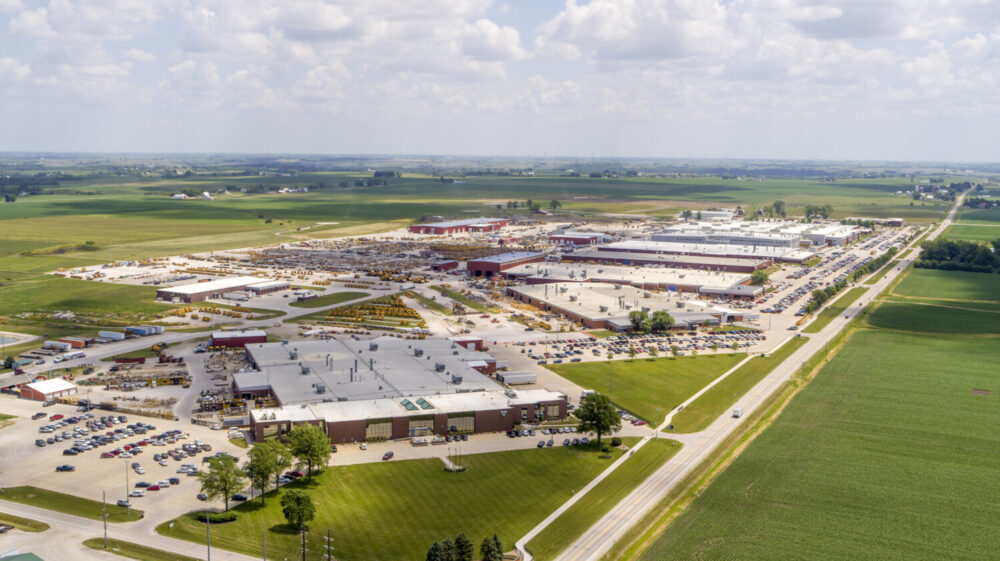
Regardless of whether the family farm is 10 acres or 10,000 acres, these principles apply. Your state extension office may have resources on transition planning specific to your state to help you get started. After that, take appropriate steps for your family farm by meeting with local agricultural lawyers. You can also talk with neighbors who have gone through a successful generational transition to jumpstart a plan or fine-tune your family’s agricultural succession plan.
“Family businesses are pretty willing to talk to each other and share what’s worked and what hasn’t,” Andringa said.
Take Andringa as an example. Starting the plan now may mean your grandchildren can celebrate 75 years, 100 years or even more impressive anniversaries of the family business long after you are gone. And that’s a legacy to be proud of.

